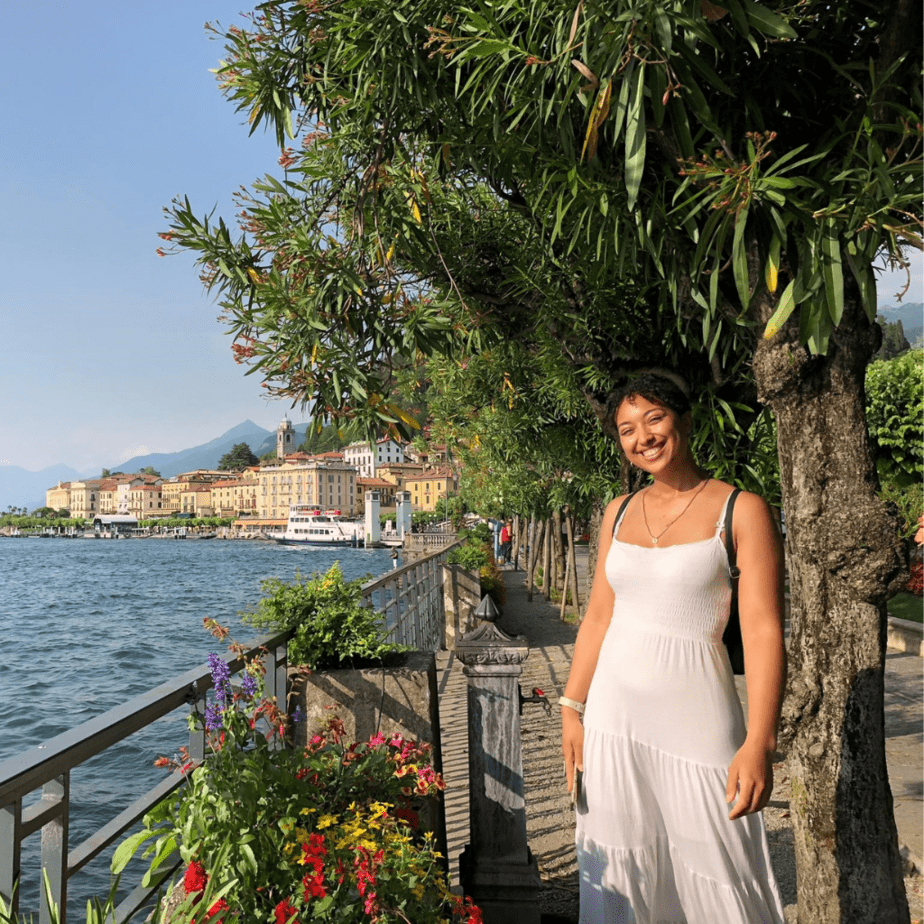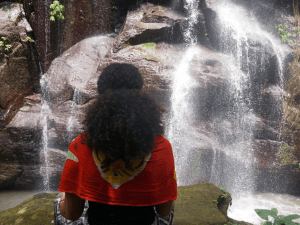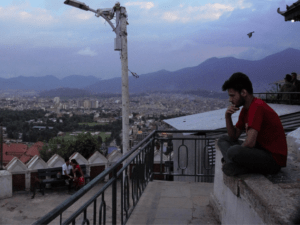Recordings of the renewed podcast episode on The Fountain (part 1) coming out soon. Meanwhile, find the new version written below.
Do you recognize the feeling that you need to take care of others? Does that make you feel drained and feel like you just need some time and space to yourself? Do you find it hard to truly connect with the people you love? To let them in? Are you used to handling things yourself and often feel like you don’t need anyone?
In this article, I share a refreshing perspective on why you might have lost touch with yourself and the people around you. This perspective is based on the book ‘The Fountain: Find Your Place’, written by Els van Steijn. Els connects a very interesting family construct theory to the ability to make connections later in life. In part 1 of this article on The Fountain, I talk about this theory and share how you can descend to your natural place in your family construct. In part 2, I discuss how you can improve your relationships with the people around you once you descended.
The construction of the fountain
The fountain is a metaphor for a family construct. Two layers above you, you’ll find your grandparents. In the layer directly above you, you’ll find the natural place of your parents. Next to you, you will find your brothers and sisters, but also your spouse and possible ex-partners. Below you are your children or grandchildren, if you have any. For this reason, you could say that the fountain is comparable to a family tree. Assuming this is the case, you might wonder why Els didn’t just use a family tree instead of a fountain to portray family constructs. This has to do with the crucial role of water.
As you are standing below your parents, they will transfer water to you. Water is what they can give you. If you are standing in your natural place in the fountain, which is right below the buckets of your parents, the natural course of water leads it straight into your bucket. If you stand in this place, they will give you what they have to give you. Unfortunately, many of us left our natural place in the fountain. That is why we feel disconnected, not only from our parents but also from ourselves. Because we left our natural place, we simply don’t receive the water we need to feel connected to the layer above us.
Three reasons we ascend in the fountain
We leave our place in the fountain when we aren’t able to accept our parents for who they are. More specifically, we ascend.
According to Els, there are three reasons why someone ascends to a higher layer in the fountain.
1. You don’t know how to set boundaries
To you, it feels like your parent depends on you, and you don’t know how to set boundaries in that situation. For that reason, you either consciously or subconsciously decide to take care of that parent. This means you take on responsibilities that aren’t yours, which leads you to ascend to the layer above them.
It could be that you might have ascended at a very young age when you felt like you needed to worry about your parents. If your parents were depressed, overly sad, or stressed during your childhood, it could be that you ascended.
Typical for someone who ascended because he didn’t know how to set boundaries, is that this type feels highly responsible for the people around him. At the same time, this person finds it hard to set boundaries to protect his own well-being. Also, this person is very perceptive to other people’s needs.
2. You are uncertain about the ability of your parent to give you what you need.
You feel disappointed about what your parent has been able to give you, or you are uncertain about the ability of your parent to give you what you need. As a result, you disconnect with this parent and refuse to receive what they try to give you. You ascend to the layer of your parents and try to take over their role. You start to get the ‘I don’t need anyone, I’ll fix things myself’-attitude. This mindset makes it difficult to allow someone else to take care of you or even be there for you. You also ascend for this reason when your parent doesn’t play any role in your life.
3. You feel the need to compensate for someone else.
Someone in your family fountain has been pushed away, and you feel like you need to compensate for that missing person. You subconsciously represent someone and feel emotions that aren’t necessarily yours. In this article, I will not focus too much on this reason to ascend.
In a good functioning fountain in which every person stands in their natural place, there is a natural course of water. This natural course starts at the top and flows from one bucket to the other until all buckets are filled. When your bucket is filled, you feel connected to the fountain because you can both receive and forward water. However, if you ascend, you are still part of the fountain but are not connected to the water flow. Instead, you feel tied to the fountain. You cannot get what you need, but you cannot escape either.
The course of water in the fountain
Water is everything that your parent is able to forward to you. It’s the gift of life, it is their love, their worry, financial support, attention, and warmth. At the same time, it also includes the things you would rather not receive from them, such as their inabilities, their anger, their stress, and their fears. However, you cannot choose what you do and do not get. You either stand in the place where you can receive their water, or you don’t.
The difference between being connected and tied
As I mentioned previously, there are two ways to be part of a fountain. You can feel connected, or you can feel tied. In Dutch, these terms seem easy to mix up since connected is verbonden and tied is gebonden in Dutch. However, there is a huge difference between the meaning of these words.
The difference is that when you feel connected, you feel like you’re part of a network in which water flows naturally into your bucket. This water flow feels easy and natural. When you feel tied, you don’t receive any water. You feel like many things cost you a lot of energy, but you aren’t able to recharge completely. You are confused and feel like you aren’t where you’re supposed to be. And in that case, you might be correct. You might not be where you’re supposed to be.
The balance between giving and receiving
Els believes that it’s crucial to feel connected to the layer above you to feel free. As you stand in your natural place in the fountain, your bucket is filled with water. From that position, you are able to give to and receive from the people around you without feeling any large extent of discomfort. A healthy balance between giving and receiving is essential for establishing and maintaining healthy relationships. And this all starts with the relationship with your parents.
In every relationship, there should be a healthy balance between giving and receiving. But the relationship between parents and children works differently, just like the relationship between teachers and students. In these relationships, children and students won’t ever be able to give back the same amount as they were given by their parents or teachers. Instead, children or students can balance this out later in life when they pay forward what they can give to the next generation and the people around them.
When your bucket isn’t filled, you are off balance and will probably find it challenging to give to or receive from others. As I personally see it, this is because at some point you refused to receive what your parents were able to give you. Therefore, you don’t accept them as the individuals they are and don’t acknowledge the natural role they have in your life. When you ascended and you feel uncomfortable with receiving from others, I think it is because you don’t feel used to knowing how to receive. More about this you find in part 2 of this article.
How to descend in the fountain
To establish and maintain a healthy relationship with others, it is important to be in your natural place in the fountain. When you feel like your parents need you or when you feel like you cannot rely on your parents, you will naturally feel the need to ascend. According to Els, it’s normal to ascend now and then, as long as you don’t stay up too long and know how to descend.
Accepting the role of your parents
Most important in the course down to your natural place in the fountain, is to accept your parents and their role in relation to you. What might help you is to remind yourself that most of the time, when you aren’t able to accept them, it has to do with you refusing to see them as they are. It might also be helpful to remember that most of the time, how they might act towards you has nothing to do with you.
Try to accept that your parents are placed above you and give you what they are able to give you. Whether it is what you need, is beside the point. You’ll get the good and the bad, and that is okay. Important is that you don’t deny them their role as your parent. They are the ones who created you, which is already a huge gift.
Don’t refuse to accept them for who they are because they don’t comply with your image of what they are supposed to be like. Your need for them to be different comes from you and it is your responsibility to see and accept them for who they are. Also, don’t take on the role of lecturing them about their choices. It is not your responsibility. They are grown people. When you do give in to these feelings, you will ascend. You might not be able to choose what you do and do not get. However, you can choose how you handle it once it’s given to you. With this starts your next challenge—the challenge to set boundaries.
Setting boundaries
You need to be able to set boundaries both not to ascend but also to descend when you do. When you feel a disproportional amount of responsibility towards your parents, you can give that responsibility back to them. It is very uncomfortable, but only then you will find out how resilient and independent your parents truly are.
What is very important is to get in touch with your most authentic feelings. At this moment, it might feel natural to feel responsible for your parents. It isn’t always as clear as feeling financially responsible for them. Sometimes even more challenging might be the feeling that you are obligated to put their mental and emotional needs first. In practice, this could mean that you choose to always be ready and accessible to your parents, and by that ignore the feeling that you need to take some time for yourself. It could also mean that you’re the first to contact them after an argument because you feel like you need to be the bigger person.
In my personal opinion, it is always good to be transparent and as clear as possible. I don’t believe in playing games and making people guess what you are feeling or punishing others by ignoring them. I would save ourselves and each other a lot of time by being clear about our boundaries.
Your responsibility
I think that being honest and showing your vulnerable side often goes a long way in improving the relationship with your parents. Also, if they don’t respond in the way you want them to, you can still respect and accept them for that. Keep accepting them as parents, so stay connected, but build forward on what they are able to give you. They might not be able to be there for you emotionally, but they are able to show up spontaneously and bring you some food, for example. Be willing to accept what they are able to give you. It improves your relationship with them and helps you to stay in your natural place in the fountain.
Descending is your responsibility. Some might choose to remain in one of the layers above them because they are okay with their position in the fountain. I think no one should judge over that. I think you should only change your position if you feel like you need to. Regardless of what you will do after realizing where you stand, it is your sole responsibility. All of our behavior leads to certain results. By staying consistent in our behavior or by changing our behavior, we influence the shape of our own lives. Once you become more self-aware of where you stand, you can no longer act ignorant or act like something is done to you that you cannot change. The path of self-awareness is a one-way street but, at the same time, a beautiful track.
Are you curious about how your position in The Fountain affects the relationship with the people around you? Click here to go to part 2 of The Fountain.
What I shared about Els van Steijn’s philosophy is based on her book. However, there is always a chance that I misunderstood some of the things she wrote. Do you want to get the philosophy straight from the source, make sure to read her book: The Fountain: Find you place.









